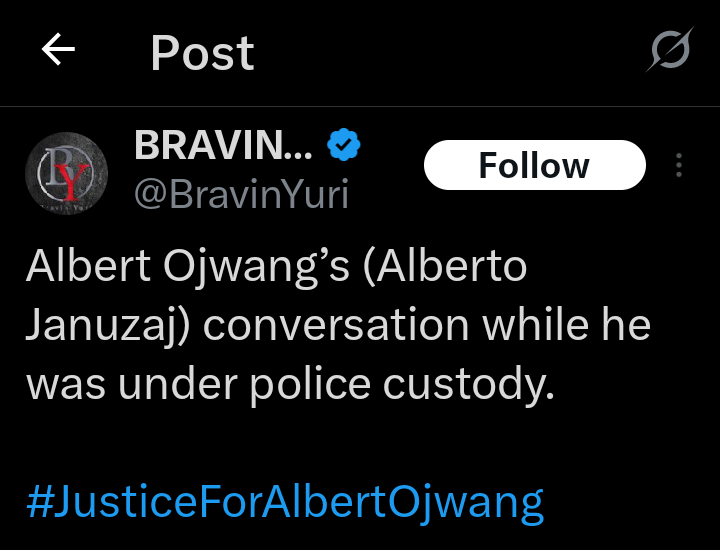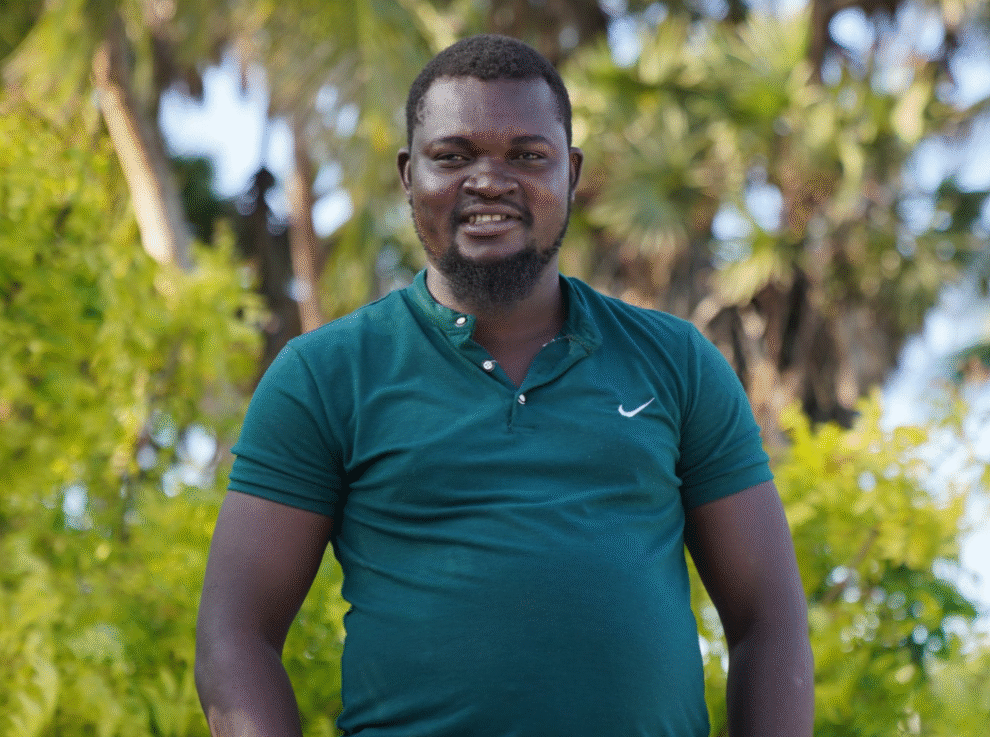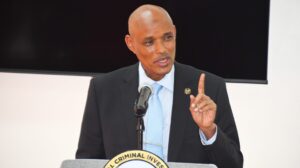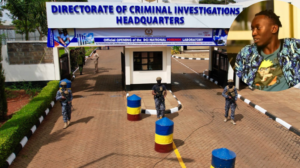A chilling phone call between Albert Ojwang and his friend has shaken the nation, offering a heartbreaking look into his final hours.
Albert Ojwang, a well-known X influencer, was arrested and transported from Homa Bay to Nairobi. During that time, he reached out to a friend with one question that has since echoed throughout Kenya,“Will I be safe in here?”
Hours later, Ojwang died in police custody under unclear circumstances on Sunday, June 8, leaving many Kenyans with pain, anger, and more questions than answers.
In the recorded phone call, Ojwang sounded calm, but it was clear that he was deeply anxious. He did not know what charges had been brought against him and seemed lost in a situation that felt unfamiliar and frightening. “Have you ever been apprehended? … How is it? I have never experienced this before,” he asked his friend.
That kind of uncertainty and fear is not something anyone should experience, especially without access to a lawyer or clear communication from the police.
His friend, whose identity remains unknown, tried to comfort him. He spoke about his own experience being held at Industrial Area Police Station, which he described as one of the worst in Nairobi.

Despite that, he assured Ojwang, “There will be challenges here and there, but things will be fine.” Ojwang, however, still pressed on, asking again if the police cell was safe. His friend responded with a firm “Yes, remand is safe.”
That brief moment in the audio, which is now being shared widely online, has become a powerful reminder of the fear that Ojwang was feeling and the false sense of safety he was given.
Not long after that call, Ojwang was reported dead. The police claimed he took his own life by banging his head on the wall of the cell.
This explanation was quickly questioned by the public. Human rights activists, legal experts, and ordinary Kenyans rejected the idea, arguing that it didn’t make sense and looked more like an excuse to cover up something darker.
People are now asking why a healthy, outspoken young man like Ojwang would suddenly decide to end his life, especially after seeking reassurance just hours earlier.
Ojwang’s family and many supporters are pushing for an independent postmortem. They say this is not an isolated case and point to a trend of unexplained deaths in police cells.
During a vigil held outside the Central Police Station, one activist said, “Ojwang was scared. He said it on the phone. He was unsure. And he never got to see a lawyer or his family before he died.”
That fear, confusion, and isolation now form the heartbreaking backdrop of this tragedy.
Kenyans are asking hard questions. Why was Ojwang moved from Homa Bay to Nairobi without being informed of the charges?
Why was there no surveillance camera in the cell? Why did no one follow up seriously on his worried phone call?
So far, there have been no solid answers from the police or IPOA, and that silence is only fueling public anger and suspicion.
On the day after his death, June 9, the Inspector General of Police Douglas Kanja ordered the arrest of the OCS, the duty officer, and all officers on duty that night.
While many saw this as progress, others remained doubtful. “We’ve seen these arrests before. But what happens next? Will there be a trial? Will anyone actually be convicted?” asked a lawyer from a civil rights group. IPOA confirmed that an investigation is underway, but trust in such internal reviews is low after years of unpunished cases.
The calls for change are now louder than ever. Members of Parliament are pushing for new laws to make CCTV mandatory in all police holding cells. Many believe Ojwang’s case might be the one that finally forces real reform. His death, painful as it is, has opened the eyes of many to the dangers and inhumanity inside Kenya’s detention system.
Albert Ojwang’s story is more than just a headline. His voice, captured in that final call, has become a symbol of the fear and injustice faced by many. While he may be gone, that haunting question “Will I be safe in here?” continues to push the nation toward a long overdue conversation about justice, police reform, and accountability.




















Add Comment